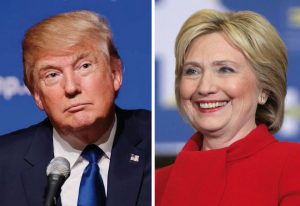 I realize my biases probably keep me from assessing debates as objectively as some, but I still must dissent a bit from the conventional wisdom on Monday’s Trump-Clinton contest.
I realize my biases probably keep me from assessing debates as objectively as some, but I still must dissent a bit from the conventional wisdom on Monday’s Trump-Clinton contest.
First, as anyone who has consistently read my column knows, I was an ardent supporter of Ted Cruz’s and was often critical of Donald Trump, particularly about his debate performances. But Trump won the Republican nomination, and like many others, I have had to regroup and shift my allegiances.
I am now going to vote for Trump — irrespective of my sincere criticisms of him during the primaries — without hesitation, mainly because of the horror I envision with a Hillary Clinton presidency.
I relate to the concerns about Trump, but I don’t get the apparent blindness of some to the egregiousness of Clinton. It’s as if their loathing of Trump not only obscures their clarity about Clinton but also, in a bizarre way, inclines them to root for her. I could be wrong; my theory is just speculation based on observation and not so objective as, say, “climate change” science.
I actually went into the debate strongly rooting for Trump, which was a surreal impulse for me and one I’d certainly not experienced before. This does not mean, fellow Cruz supporters and others, that I’ve changed my standards or sold out. It’s just that I believe a Hillary Clinton presidency would be indescribably horrendous for America.
I vividly recall many analysts on both sides of this question saying that all Trump had to do to win was to look stable, sane and in control and not commit any major gaffes — because when it comes to Trump and policy, they insisted, there are low expectations.
So as the debate began, I sensed that Trump seemed comfortable and, for him, on his game and was doing just enough parrying to make Clinton uncomfortable and slightly off her game.
I don’t agree with Trump on certain issues — especially trade — so I am not favorably disposed toward his arguments about NAFTA or China, among other things. That aside, Clinton had no answer and was uncomfortable. I also thought Trump scored against her in making the case that taxes and regulations are smothering the economy, jobs and businesses, though he should have been more relentless. Clinton had no explanation for that, either, except the tired argument that George W. Bush caused it eight years ago — because he happened to be in office when the financial meltdown, mainly caused by do-gooder liberal housing policies, almost wrecked the economy, and none of it is Obama’s fault, simply because nothing is ever his fault. Can you believe these people?
Admittedly, the debate didn’t continue this way, and Clinton remained superficially composed and smooth enough. Trump did miss opportunities, as everyone has said, and he was on the defensive too much as the debate continued.
On the other hand, Trump’s defensiveness may have been triggered by moderator Lester Holt’s one-sided, accusatory questions, mostly about personal matters, such as the birther issue and Trump’s tax returns. The problem is that Trump can’t ever seem to resist taking the bait and is compelled to defend himself against personal criticism, to the point of distraction on the substantive issues and to his overall detriment. If he could overcome that fatal temptation before the next debate, it could make a significant difference.
Using a conventional debate yardstick, Trump didn’t do that great. But so what? The experts told us he didn’t need to. He didn’t do that poorly, either. He actually did much better than I expected. He managed to challenge Clinton on many points — both offensively and defensively — without losing his cool or being disrespectful. It could be that his advisers had convinced him that calmness in demeanor would be more important. But next time, he should seize on Clinton’s countless weaknesses.
So though I don’t disagree that Trump could have been less defensive and more offensive in going after Clinton on her vulnerabilities, he did pretty much what the analysts said he needed to do — i.e., satisfy low expectations — but they refused to use that standard after the debate.
More troubling, though, is that they gave Clinton too much of a pass. They seemed mesmerized by her preparation and smoothness, especially in contrast with Trump’s. But why is this newsworthy?
Did they not see the phony smile plastered on Clinton’s face to match her phony demeanor? Did they miss her dripping condescension? Did they fail to catch wrongheaded and tired policy arguments — even if they were smoothly delivered? How about her incessant lying?
What difference does it make if Clinton speaks glibly when her unctuous words are so objectionable? Does it not bother the analysts that Clinton engaged in disgraceful race baiting, gender shaming and class warfare all night or that she didn’t offer any solutions to the perpetual economic malaise we’re in because of policies she endorses? Does it not bother them that Holt didn’t press her on her many weaknesses and scandals, such as Benghazi and emails — not to mention the economy and debt? Yes, we expect unfairness from liberal moderators, but that doesn’t mean we should quit pointing it out — especially as we analyze respective debate performances.
So let’s acknowledge that Trump should have capitalized on Clinton’s liabilities and been less defensive. But you all never expected him to, so how about holding yourselves to your own standard of assessment? Moreover, focusing on Trump’s failure to perform at a level you weren’t demanding of him in the first place clouds your vision about the bogusness of Clinton’s case, her smarminess and her lack of authenticity.
Conventionally scored, Trump may have lost handily, but in the end, I doubt the electorate views these debates — especially during this unorthodox presidential year — the same way as do college debate judges, who don’t care a whit about likability, smugness, disingenuousness or the advocacy of failed policies, as long as positions are competently delivered. I am aware of the post-debate polls supposedly showing Clinton trounced him, but I remain unconvinced.
I may well be too biased against Clinton to adequately evaluate the debate, but I am not the only one whose predispositions interfere with objective analysis.
COPYRIGHT 2016 CREATORS.COM
Photo credits: Gage Skidmore, Wikimedia Commons
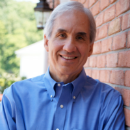 David Limbaugh is a writer, author and attorney. His latest book is “The Emmaus Code: Finding Jesus in the Old Testament.” Follow him on Twitter @davidlimbaugh and his website at www.davidlimbaugh.com.
David Limbaugh is a writer, author and attorney. His latest book is “The Emmaus Code: Finding Jesus in the Old Testament.” Follow him on Twitter @davidlimbaugh and his website at www.davidlimbaugh.com.
The views expressed in opinion articles are solely those of the author and are not necessarily either shared or endorsed by Black Community News.
 Black Community News News and Commentary for Christians
Black Community News News and Commentary for Christians
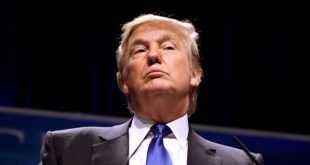
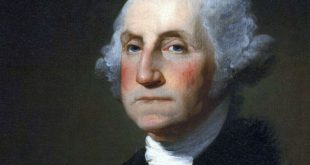

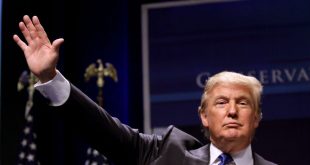
I am definitely a huge fan of Ted Cruz, his conservative views and his commitment to our Constitution! But unfortunately Cruz does not qualify to be POTUS. He was born in Canada and his father was a Cuban citizen. His surname from his father and his father’s Cuban nationality was passed on to him. He has a Canadian birth certificate and was a duel citizen of Cuba and Canada where he lived to age four. At four his mother, a citizen of the USA, moved him to the US and registered him so he could become a Naturalized citizen. He is not a NATIVE BORN CITIZEN!, a requirement to be POTUS.